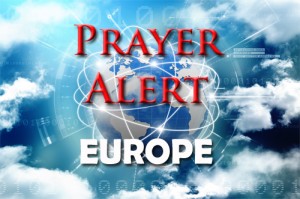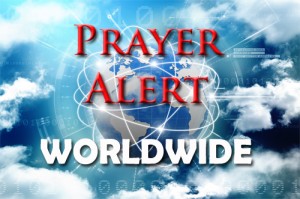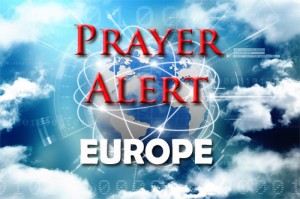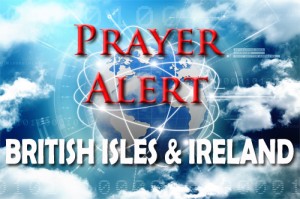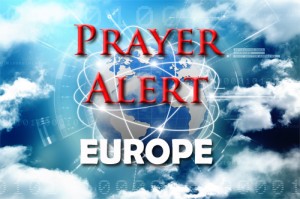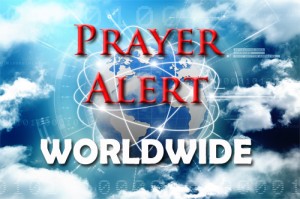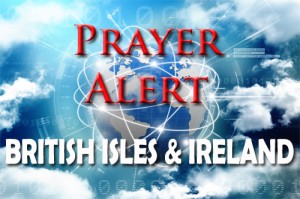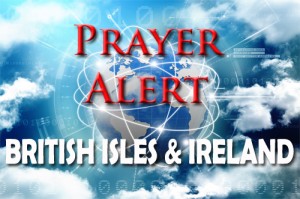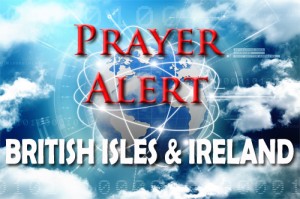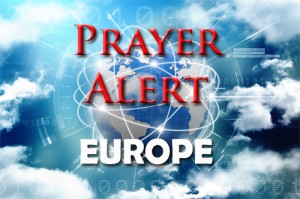Displaying items by tag: Politics
EU: Theresa May’s Brexit speech
On 21 September, the day before Theresa May delivers her first major Brexit speech in Florence, she met with her Cabinet to discuss her terms for Brexit. The last time she addressed the EU was in January, at Lancaster House, when she set out her original vision for Britain outside the EU. Now, with negotiations deadlocked over the ‘Brexit bill’ and the role of the EU courts, Europe is looking for a major policy intervention. Boris Johnson says the media is talking 'nonsense' about MPs having split allegiances while he and Philip Hammond, at opposite ends of the soft/hard Brexit debate, attempt to present a choreographed show of unity. However, some believe Friday's speech will not generate 'an immediate breakthrough' in Brexit talks.
Australia: same-sex vote
There is an expectation in Australia that once the result of the same-sex marriage postal vote is announced on 15 November the matter will be resolved once and for all. According to opinion polls a Yes vote looks likely, clearing the way for amendments to the Marriage Act. But there’s a twist in this long-running, angry issue (on 21 September a man head-butted former prime minister Tony Abbott as he campaigned for a No vote). Opposition leader Bill Shorten seeks to define marriage as ‘a union between two people’ meaning that all are eligible: heterosexuals, homosexuals and people of any other gender or sexuality. This could be immensely complicated.
Germany: election on 24 September
Angela Merkel has been chancellor since 2005. Her Lutheran faith (she calls it an inner compass) expresses itself in her unflashy style and her instincts - debt is bad; helping the needy, good. She thinks ethically, not ideologically. ‘I’m a bit liberal, a bit Christian-social, a bit conservative’, she said in 2009. Her years in office have made her a familiar figure to Germans and to the world. However, Germany needs reform. The lowest-paid 40% of German workers are earning less than 20 years ago. Foodbank use is up. The rate of investment has been dropping since 2012. Bridges creak and potholed roads challenge even the best-engineered suspensions. The economically crucial car industry has been tainted, as has the country’s air, by emissions from the diesel engines it favours (a scandal it tried to cover up). Dirty coal is filling gaps left by closing nuclear plants, and the country’s carbon-dioxide emissions are up.
Scotland: education gap
Nicola Sturgeon often says that she wishes to be judged as first minister on her government's record in education. She cares passionately about trying to close the attainment gap which sees pupils from better off homes performing better in school than children from more deprived backgrounds. But nearly three years after she became first minister, standards in Scottish schools have been judged by international measures to be slipping in reading, writing and maths. Her political opponents say she should be embarrassed by her record. On 5 September she said that education is the ‘defining mission’ of her government.
European Court orders countries to take migrants
Many so-called asylum-seekers have refused to relocate to central and eastern Europe because the financial benefits there are not as generous as in France, Germany or Scandinavia. Now many believe a European Court ruling on 6 September, that the 28 member states must step up to the mark and accept their quota of migrants, highlights the degree to which the EU has usurped decision-making powers from countries and individuals. Hungarian prime minister Viktor Orbán said, ‘Let us not forget that those arriving have been raised in another religion, and represent a radically different culture. Most of them are not Christians, but Muslims. This is an important question, because European identity is rooted in Christianity. Is it not worrying in itself that European Christianity is now barely able to keep Europe Christian? If we lose sight of this, the idea of a Christian Europe could become a minority interest in its own continent.’
Sudan: church challenges government interference
The Sudanese Church of Christ (SCOC) is challenging a government decision to impose an unelected leadership committee on the church. On 23 August the Ministry of Guidance and Religious Endowments, which oversees religious affairs in Sudan, appointed an alternative executive committee led by Mr Angelo Alzaki. Before this, eight SCOC leaders had been arrested and charged with trespassing on church headquarters and refusing to hand over control of the church to him. They were later released on bail. The SCOC's leadership said that this action violates the procedures of the denomination. The situation mirrors the Sudan Evangelical Presbyterian Church, where a government-backed church committee that was not constituted in accordance with church procedures has sold church land to developers.
Theresa May on North Korea
Speaking to reporters on her way to Japan, Theresa May four times refused to rule out British action to stop North Korea’s illegal missile launches, as the rogue state threatened to increase its military tests. She called on China to do more to rein in dictator Kim Jong-un, and said such pressure was the key to easing the crisis. A British government source suggested that cyber-warfare might already be being deployed against North Korea, saying to reporters, ‘If we were doing that we certainly wouldn’t be telling you.’ Mrs May landed in Japan on 30 August, a day after a North Korean missile flew over Hokkaido. Her talks with President Shinzo Abe will focus on trade, security, and Kim’s nuclear and ballistic missile programmes.
Bishops call for review of benefits freeze
Bishops have urged the Government to review its benefits freeze urgently, after a ‘deeply disturbing’ report, by the Child Poverty Action Group, found that poor working parents did not have the cash needed to look after children. Low-paid families are failing to keep up with inflation, and many welfare payments have been frozen. Families working full-time are 13% or £59 a week short of the amount needed to provide their children with a minimum standard of living, according to the report. The Bishop of Gloucester, Rachel Treweek, said, ‘We have heard a lot about how earnings are not keeping up with inflation, but there is an urgency to recognise that low-income working families are taking a double hit due to the four-year freeze in child tax credits and other benefits. With rising inflation, it is time to reconsider this policy in order to protect the living standards of the poorest families.’
Affordable housing
Speaking during a tour of the £800-million Countesswells new town development in Scotland on 30 August, the Scottish Conservative Party leader, Ruth Davidson, said there were still fewer homes being built than before the financial crash. She added, ‘We know there is a lack of housing across Scotland. We really need to get our fingers out and build more houses across the country. This new community simply wouldn’t happen without the support of the UK Government.’ Earlier this year 636 homes were earmarked for first-time buyers and renters by the Battersea Power Station Development Company, but by July it was offering only 386 affordable homes. The developers said the entire project may become financially unviable if they are forced to stick to their original figure, adding that they made the undertaking when London’s new-build market was booming and construction costs were lower. See:
Europol: prayer needs
Europol assists the 28 EU member states in their fight against serious international crime and terrorism. It also works with many non-EU partner states and international organisations to reduce terrorism, drug trafficking, money laundering, organised fraud, euros counterfeiting, and smuggling. But new dangers of online radicalisation and people-trafficking are growing. The networks behind crimes in these areas are quick to seize new opportunities, and are resilient in the face of traditional law enforcement measures. Pray for stronger and wider monitoring of danger through better intelligence-sharing at the highest levels, so that countries can maximise the use of information from all possible sources. Most terrorists have criminal backgrounds, and terrorism is funded by crime. Pray for police across continents to improve the sharing of databases on criminals as they establish an intercontinental cooperation network, so that policing reaches darker places not yet touched by law and order.
